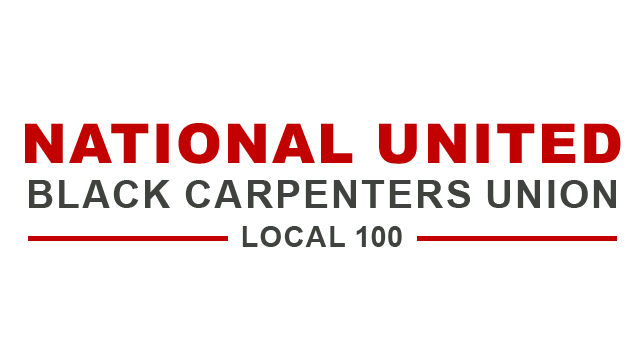Building Equity: A Call to Action for Black Contractors in America
As the President of the National Black Contractors Association of America (NBCAA), I write today with a sense of urgency and purpose. The ongoing marginalization and exclusion of Black contractors and workers in America’s construction industry is not just an affront to our progress—it’s an issue that strikes at the core of what it means to build an equitable society. This is a call to action. We must confront the systemic barriers that persist and demand solutions that align with the principles of fairness, opportunity, and inclusion.
A History of Exclusion
The NBCAA stands as the first and only Black-led federal and state-approved open-shop apprenticeship program in the United States, a distinction born out of necessity. For over three decades, Black contractors and workers have been sidelined by exclusionary practices, many of which are entrenched in political and labor systems designed to protect the status quo.
Historical context is crucial here. Black Americans have faced union nepotism and systemic discrimination since the 1800s. Despite the landmark Civil Rights Act of 1964 and subsequent legislation aimed at leveling the playing field, the promise of equal opportunity in skilled trades remains unfulfilled.
One of the most significant obstacles has been the weaponization of collective bargaining agreements (CBAs) and project labor agreements (PLAs). These tools, often presented as vehicles for diversity, equity, and inclusion (DEI), have instead been used to block the participation of non-union contractors and merit-shop apprenticeships, including those spearheaded by the NBCAA.
The Reality of Project Labor Agreements
PLAs have become a formidable barrier to progress, excluding non-union apprentices from publicly funded projects and forcing many workers to join unions under the guise of prevailing wages. These agreements disproportionately impact Black contractors and workers, who often rely on merit-shop models to access opportunities.
Consider the numbers: in California, out of 10,820 carpenter apprentices, only 742 are Black. This staggering disparity highlights the systemic exclusion of Black workers from an industry that should reflect the diversity of the communities it serves.
Moreover, Spanish-speaking dominance in certain sectors of the construction workforce has further marginalized Black workers. Non-Spanish-speaking apprentices are often relegated to menial tasks, denied meaningful training opportunities, and systematically excluded from advancement.
Challenging the Status Quo
The NBCAA has fought tirelessly against these injustices. In partnership with organizations like the Associated General Contractors of America (AGC), we have worked to overturn policies that discriminate against non-union apprenticeships. These efforts are not just about equity—they’re about preserving the integrity of America’s workforce.
In 2020, following the George Floyd uprising, AGC began lifting restrictions that prevented its members from hiring NBCAA apprentices. This was a step in the right direction, but much more remains to be done.
The Biden administration’s promotion of PLAs has exacerbated the problem, creating a false narrative that these agreements serve the greater good. In reality, they undermine free enterprise, restrict competition, and stifle the growth of minority-owned businesses.
A New Era: The National United Black Carpenters Union
In response to these challenges, the NBCAA is proud to announce the inauguration of the National United Black Carpenters Union Local 100. This groundbreaking initiative aims to advocate for the rights of Black carpenters who have been marginalized and excluded.
The union’s mission includes:
Protecting Merit-Shop Apprenticeships: Ensuring fair treatment and defending against false claims targeting non-union contractors.
Advocating for English as the Industry Standard: Promoting safety and communication in the workplace.
Demanding PLA Reform: Calling for the repeal or amendment of PLAs to include merit-shop apprenticeships.
Local 100 represents a new chapter in the fight for equity, one that prioritizes collaboration, advocacy, and tangible results.
Why This Matters
This is not just about the construction industry. It’s about the broader implications of exclusion and marginalization in America. When we deny opportunities to Black contractors and workers, we undermine the very fabric of our nation. Diversity is not a threat—it is a strength.
Economic disparities rooted in systemic racism weaken our collective progress. The construction industry, a cornerstone of our economy, must lead by example. Fairness in hiring, training, and contracting practices is not just good policy—it’s good business.
A Call to Action
To our political leaders: we urge you to prioritize equity in public works projects. Repeal exclusionary PLAs and champion policies that support all Americans, regardless of race or union affiliation.
To our industry partners: recognize the value of diversity and inclusion as essential to long-term success. Collaborate with organizations like the NBCAA to foster a more equitable workforce.
To the public: hold leaders and institutions accountable. Demand transparency and fairness in how public funds are allocated and spent.
Being on the Right Side of History
The challenges we face are significant, but so too is our resolve. The NBCAA is committed to building a future where opportunity is not defined by race or affiliation but by merit and capability.
This is our moment to stand on the right side of history. Together, we can dismantle the barriers that hold us back and construct a more inclusive, equitable America. Let us begin today.



Leave A Comment